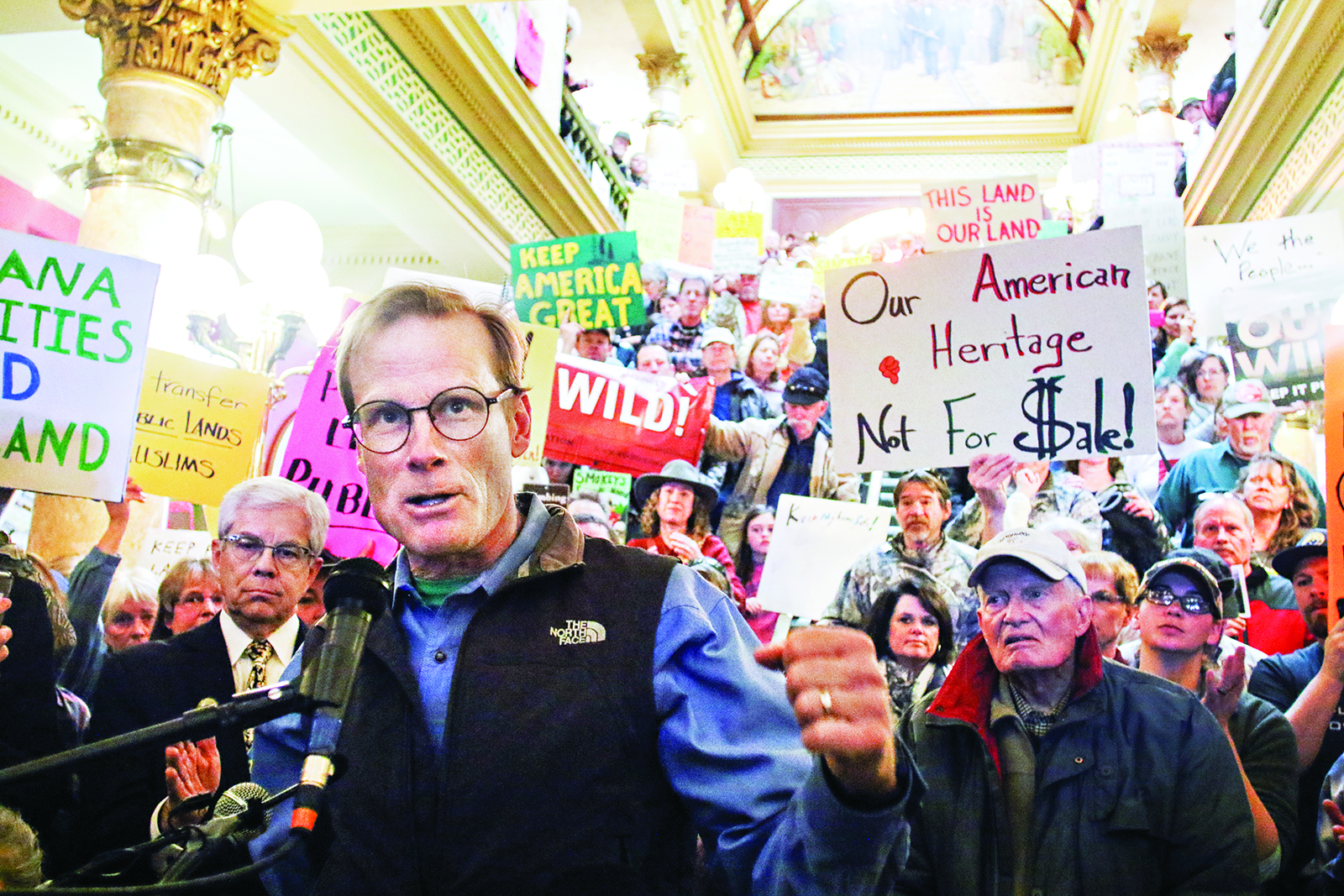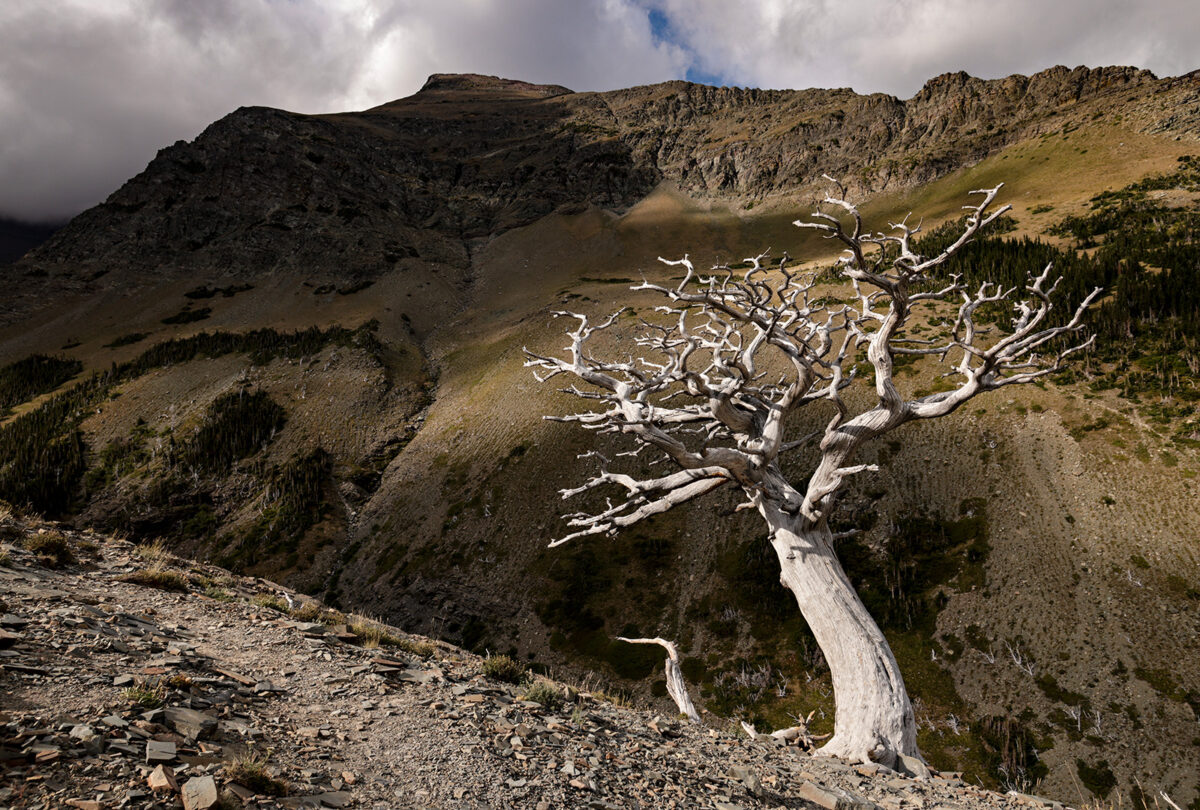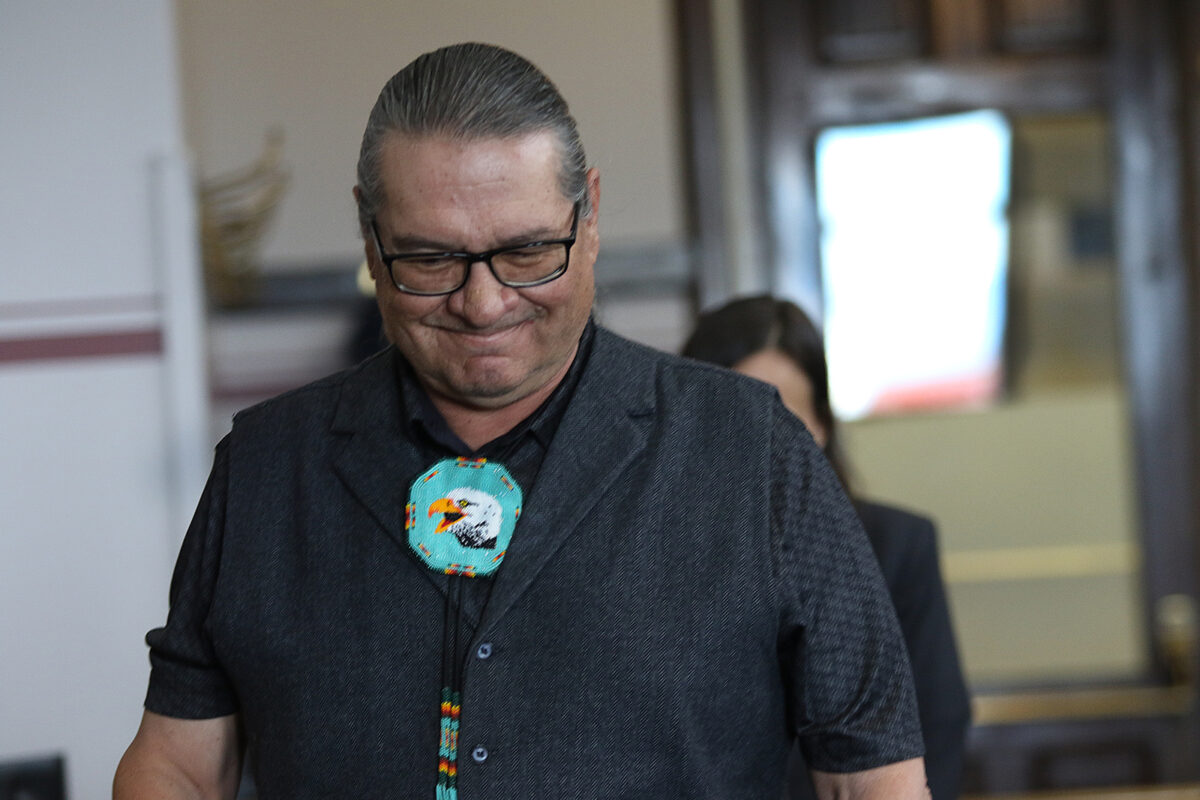Professional Climbers, Outdoor Athletes File Briefs Supporting Youth Plaintiffs in Climate Lawsuit
Dozens of public health experts, Tribal nations and former justices are also among those supporting youth plaintiffs in landmark case
By Micah Drew
For more than three decades, professional climber Conrad Anker has dazzled the world with mountaineering exploits that push the limits of what was thought possible in the alpine realm of rock and ice. The Bozeman-based mountaineer has scaled rock walls and icy pillars in far-flung places like Mount Everest and Antarctica, as well as those close to home, such as Hyalite Canyon, a Montana climbing mecca.
That puts him in a unique, and sometimes precarious, position to witness the effects of climate change on alpine environments up close.
“As an ice climber the threat of climate change is very real. We can look at the statistics of a shortened winter, but it really strikes home when you go to your favorite area and a climb that you’re familiar with, that shapes up every year, is absent,” Anker wrote in an amicus brief filed in support of 16 youth plaintiffs who won a landmark victory in the climate lawsuit Held v. Montana last summer.
The court document containing Anker’s testimony is among 20 “friend of the court” briefs the Montana Supreme Court will consider as legal teams on both sides of the case brief the high court on a legal challenge from the state of Montana, which appealed the ruling by Lewis and Clark District Court Judge Kathy Seeley, arguing that she erroneously struck down a provision of the Montana Environmental Protection Act. In her 103-page order, Seeley declared that the youth plaintiffs in Montana have a “fundamental constitutional right to a clean and healthful environment,” and overturned two laws enacted by the state Legislature in 2023 that prohibited state agencies from considering greenhouse gas emissions and climate change impacts while conducting environmental reviews.
A date for oral arguments has not yet been set. However, plaintiffs’ attorneys are shoring up their case with testimony from a wide range of stakeholders whose livelihoods are shaped by environmental factors.
“We care about the climate because we care about the future. Not some abstract vision of the future, but a future that children can experience as we have,” Anker wrote in the brief. “To preserve what is great in our state we need to honor the constitution. Who benefits from not having the environment considered in impact studies? Not the peregrine, nor the ponderosa, nor the buffalo. The citizens do not benefit. The corporations benefit at the expense of what is the true treasure of Montana — its natural environment.”

Eight other professional outdoor athletes from Montana — including professional runners, skiers, fishermen and climbers — signed on to the brief with Anker, each using their unique experiences to illustrate the power of Montana’s Constitutional protections and the threat posed to the interests of the Held plaintiffs and all active Montanans if the state’s water, land, air and wildlife are further degraded by greenhouse gas pollution and climate change.
“Having spent large portions of my life roaming the mountains in Montana, I notice acute changes taking place in this landscape I hold dear,” wrote Mike Wolfe, a Bozeman-based professional ultra runner. “Choking wildfire seasons and unremembered heat waves in the summers now seem the norm. Now often times in the summer months I find myself checking the Air Quality Indexes before I go for a run, as it’s often unhealthy to train outside running. I worry what the next summer will bring, I worry what Montana will be like for my children when they are grown up. I feel a sense of anxiety to spend more time in the wilds of Montana, before its irreparably changed.”

In addition to the outdoor athletes, more than 100 individuals and dozens of organizations and businesses submitted 11 different amicus briefs in support of the plaintiffs. Nine entities, including officers of the Montana Legislature and various industry groups, previously filed amicus briefs in the lawsuit supporting the state’s appeal to reverse the ruling.
A group of outdoor recreation industry members, including Patagonia, Orvis, School of Trout and the Yaak Valley Forest Council, wrote that outdoor recreation contributes to 4.3% of Montana’s annual GDP, larger than mining, quarrying and oil and gas extraction combined, and is increasingly at risk from climate-related impacts such as reduced snowpack, degraded river quality, and increased wildfire seasons.
“There are more American jobs in the hunting and fishing industry along than in the entire oil and gas extraction industry,” the brief states. “A clean and healthy environment is foundational to the businesses that make up the outdoor recreation economy and the industry cannot continue to thrive unless government agencies account for the climate impacts of their decisions.”
In their appeal to the state Supreme Court, attorneys for the state of Montana argued that the plaintiffs were unable to prove a direct link between the exception to MEPA, the effects of global climate change, and their own physical and mental injuries. “There was a complete absence of proof on a key element of standing — the direct causal connection between Montana’s actions and Plaintiffs’ alleged injuries,” according to the state’s opening brief.
A host of experts and entities disagree with the state’s assessment, however, including 113 public health experts and doctors and 17 public health organizations who submitted an amicus brief affirming that the medical literature “strongly supports the District Court’s factual findings that climate change is creating serious respiratory, extreme heat, and mental health harms.”
The brief summarizes peer-reviewed studies indicating the severe impacts of wildfire smoke on youths and individuals with pre-existing health conditions, the effects of extreme heat and the relationship between climate change and extreme weather events and reported declines in mental wellbeing.
“Appellees’ injuries only begin to scratch the surface of what the scientific and medical literature confirms: the impacts of climate change on public health are significant and far-reaching,” according to the brief.
Six former Montana Supreme Court Justices also filed an amicus brief, stating concerns over the separation of powers in Montana’s government. “In recent years, repeated attempts have been made to abridge long-settled elements of the judicial power,” according to the brief. “The partisan branches of our government seek to bar the judicial branch from enforcing constitutional rights.”
“Certain policy decisions are entrusted to the legislative and executive branches,” the brief continues. “However, whether those policy decisions (by commission or omission) violate the clear and unambiguous provisions of the Constitution, are clearly within the powers held exclusively by the judicial branch.”

Six of Montana’s federally recognized Indigenous governments, including the Blackfeet Nation and the Confederated Salish and Kootenai Tribes (CSKT), submitted a brief urging the court to affirm the ruling, citing the specific impact of climate change on their cultural practices and food sources. The brief affirmed testimony heard during last summer’s trial about how intertwined tribal traditions are with the natural world, including how the CSKT’s Creation Stories can only be told when there is snow on the ground.
“Though impossible to generalize across all the diverse Native Nations and Indigenous people in Montana, one of the strongest common roots of culture and identity is a deep connection to the land, water, wildlife, and natural environment,” according to the brief. “These places are not merely regarded as natural resources or sites for recreation but rather play a central role in defining systems of learning, understanding, culture, and the very existence of Indigenous people.”
Attorneys for the state must file response briefs by April 26 and the Supreme Court is expected to set a date for oral arguments soon.